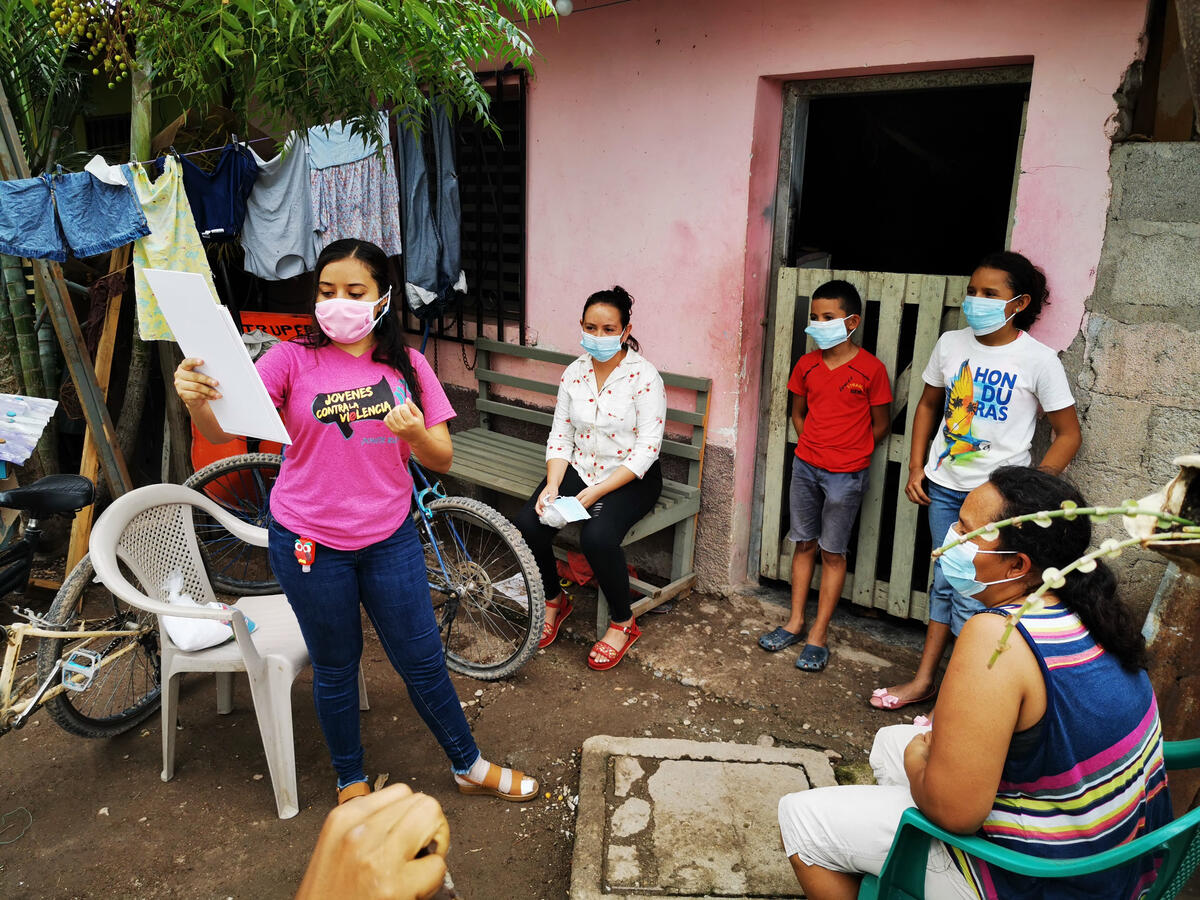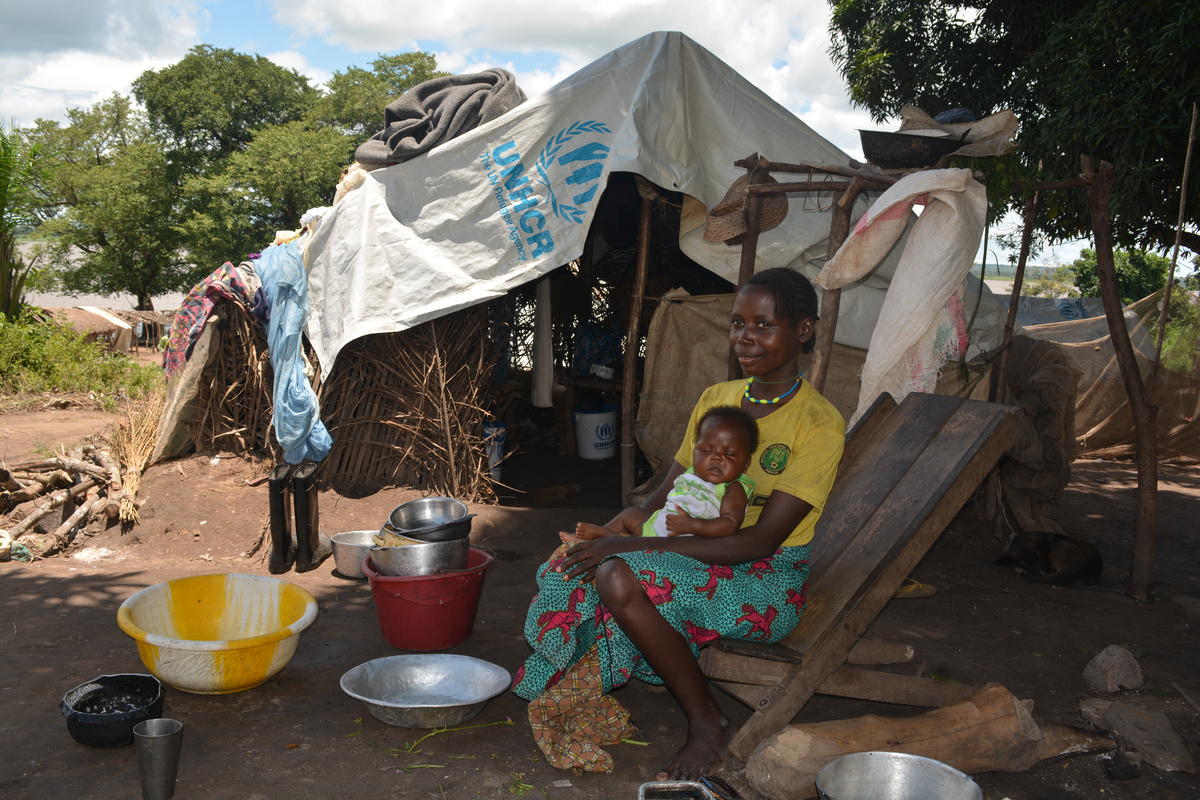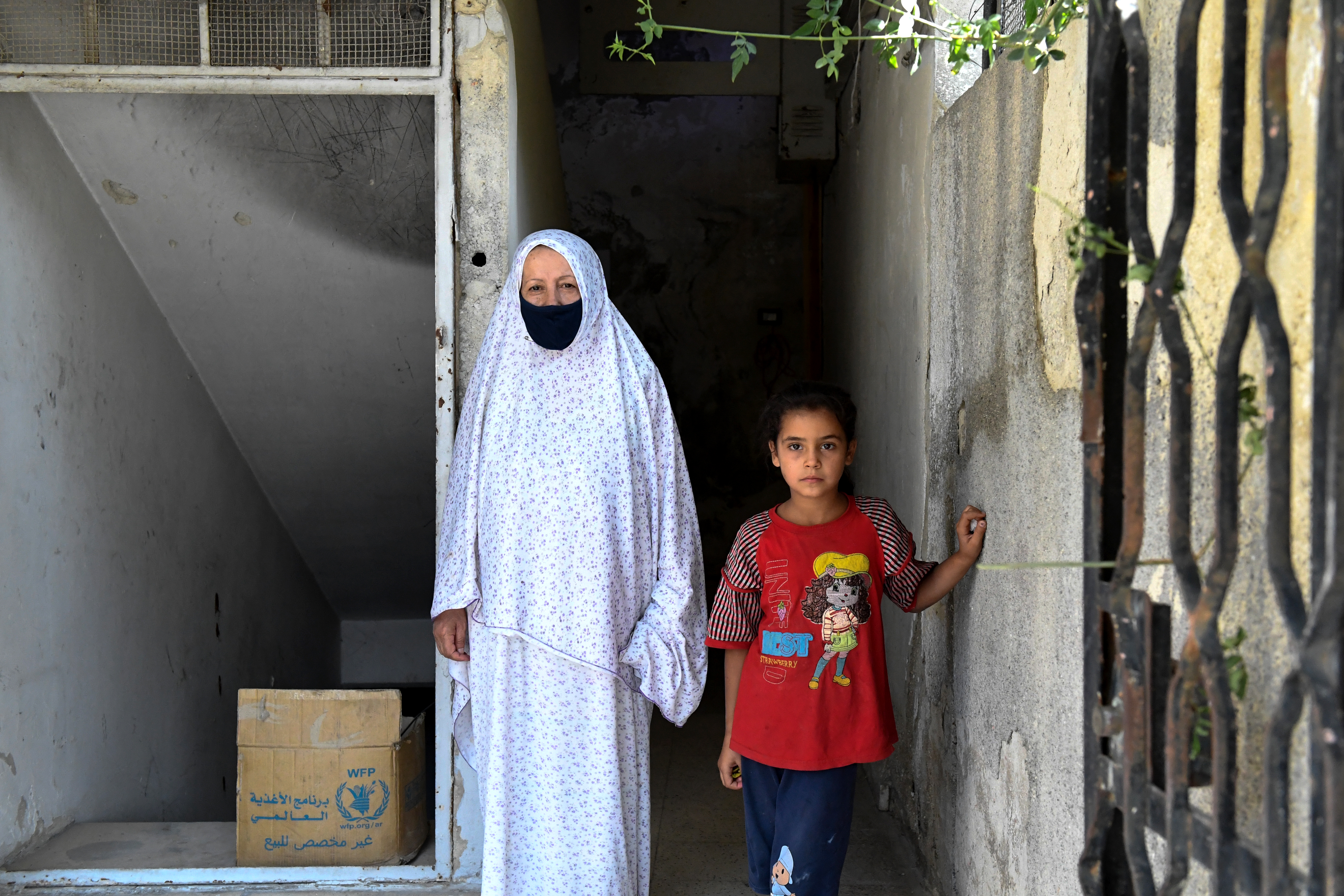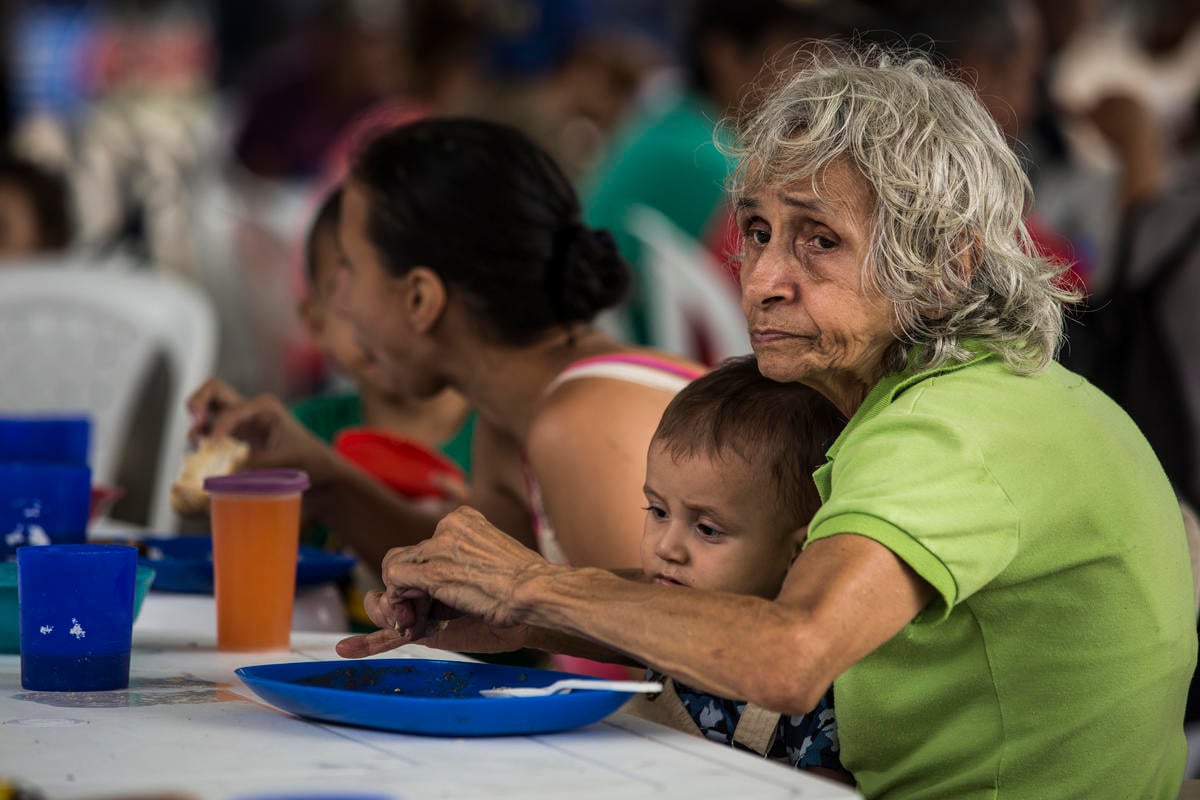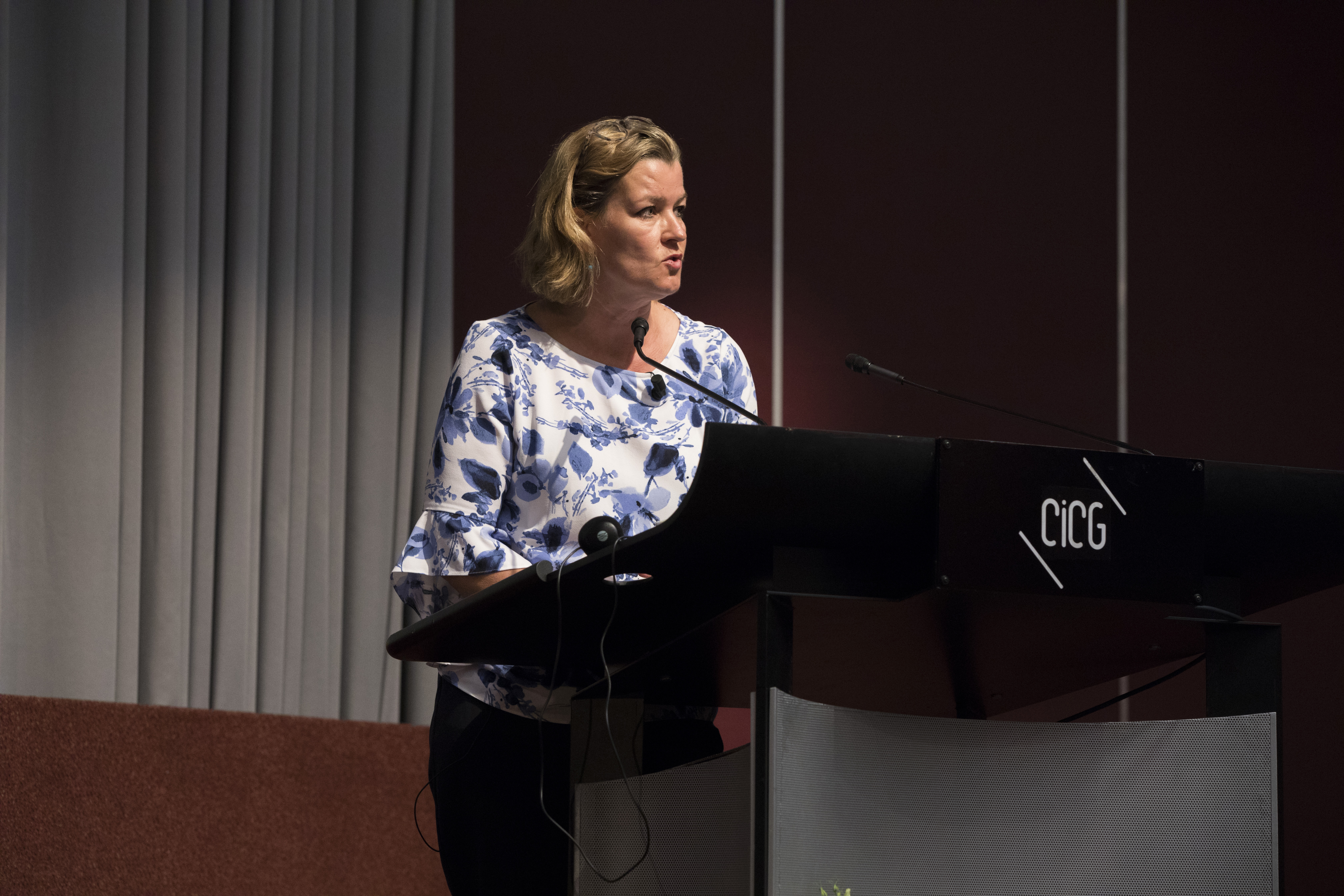Arab NGOs, UNHCR agree to boost co-operation
Arab NGOs, UNHCR agree to boost co-operation

RIYADH, October 22 (UNHCR) - The UN refugee agency and representatives from the main non-governmental organisations (NGOs) on the Arabian Peninsula have agreed to boost co-operation to help Arab aid agencies become more active partners in refugee relief operations.
During a meeting in the Saudi capital October 7-8, officials from UNHCR's regional office for the Gulf States and its Geneva headquarters reviewed with representatives from nine Arab NGOs joint initiatives currently under way, including relief activities in Afghanistan and Iraq, and possible future areas of co-operation.
It was the fourth meeting of UNHCR and the Islamic NGOs since 2001.
UNHCR expects the meetings, along with other contacts throughout the year, to help the NGOs benefit from its more than five decades of experience in refugee relief and emergency assistance.
NGO participants in the October meeting included the Saudi Red Crescent Society, the International Islamic Relief Organisation, Zakat House, the International Islamic Charitable Organisation, Zayed Foundation, Human Appeal International, Eslah Society, Qatar Red Crescent Society and the Qatar Charitable Society.
Representing the main charitable agencies in Saudi Arabia, Kuwait, the United Arab Emirates, Bahrain and Qatar, the groups agreed with UNHCR to boost co-operation in training, co-ordination, relief operations and in the information and public awareness sectors.
The Gulf aid groups expressed great interest in supporting UNHCR's water, shelter and transportation projects in Afghanistan, Yemen, Sudan and other African countries. All the NGOs expressed readiness to help UNHCR projects in Iraq, especially those related to Palestinian refugees.
Plans for the coming months include the finalisation of a database cataloguing the NGO's field capacities, sector competencies and specialties in order to help the UN refugee agency more quickly tap their expertise for its own relief programmes.
Another proposal under study is to create a joint stockpiling centre in the Gulf to enhance the capacity for rapid and organised response by agencies seeking to meet urgent humanitarian and relief needs.
Field co-operation between UNHCR and several of the aid agencies is already well advanced, while others are already supporting UNHCR's work in a number of countries.
Two key members of the UNHCR-Arab NGO grouping, the Kuwait Red Crescent Society and the UAE Red Crescent, were not represented at the regional meeting due to a conflicting regional conference in Abu Dhabi, but are already supporting the UN refugee agency.
The Kuwaiti Red Crescent Society is currently funding a $750,000 project to provide wells and irrigation systems as part of UNHCR's water projects underway in Afghanistan.
The UAE's Red Crescent Society recently signed an agreement with UNHCR to co-operate on projects to aid refugee women and children. Sheikha Fatima, wife of UAE President Sheikh Zayed and honorary chair of the country's Red Crescent, has initially provided $600,000 to fund the programme. UNHCR is now identifying projects for eventual funding under the joint initiative.
Another key UNHCR partner on the Arabian Peninsula, the Oman Charitable Organisation, was also unable to attend the Riyadh meeting as its key staff were in Afghanistan, where the group is currently financing part of UNHCR's shelter operation with a contribution of $367,000.
UNHCR and its Arab partners plan a fifth meeting in March 2004 in Kuwait, under the auspices of Zakat House, an NGO based there. A total of 17 relief agencies are involved in UNHCR's Gulf NGO Network (GNN).



